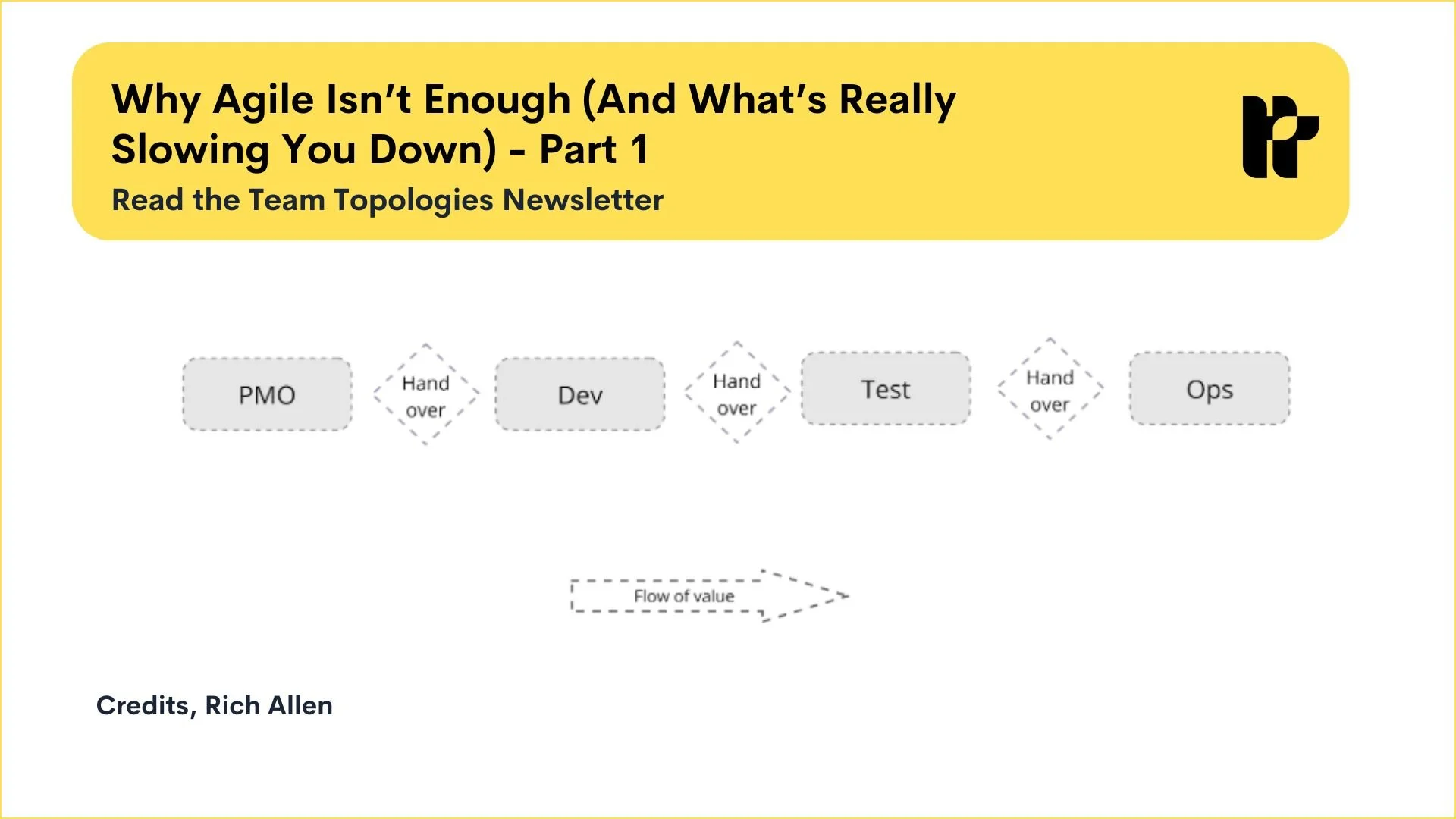Newsletter (June 2024): How Platform Teams Reduce Cognitive Load: Insights from Team Topologies
The Unseen Cost: Cognitive Load Beyond the Realm of Software Teams
Cognitive load, which refers to the total mental effort used in working memory, affects various sectors and team structures beyond software teams. High cognitive load can hinder performance, innovation, and team health. Managing cognitive load is essential for effective, efficient, and productive teams. "Team Topologies" by Matthew Skelton and Manuel Pais highlights the importance of balancing cognitive load in the workplace. Instead of focusing solely on architectural choices like monoliths vs. microservices, organizations should prioritize understanding and managing cognitive load, as discussed in the video Monoliths vs Microservices is Missing the Point—Start with Team Cognitive Load. JP Morgan applied Team Topologies concepts to reduce cognitive load and improve team performance, as explained by Tracy Bessant, Dheeman Ranjan, and Ana Kukec. Other companies in various markets have also benefited from these principles.
To measure cognitive load, you can:
follow the advice of Ben Dodd and Billie Thompson
use Teamperature by Team Topologies, which provides a data-driven perspective on cognitive load drivers, helping identify areas needing attention.
Have you been using Team Topologies and want to share your experience? We would love to publish your story. Contact us.
What are Platform Groupings and How Can They Help with Cognitive Load
Since the book's publication, Platform Teams have evolved into Platform Groupings—teams that own and evolve a platform used by client Stream-aligned Teams. These groupings, formed by stream-aligned or other fundamental team types, are responsible for shared infrastructure and services, reducing the cognitive load on product teams and allowing them to focus on customer value. For more details, keep an eye on our blog (coming soon). Krzysztof Hałasa shares some lessons on discovering cognitive load and planning platform groupings, while Michael Lihs has improved patient outcomes in a healthcare organization by adopting OKRs and a value stream operating model using Team Topologies patterns..
Is your organization fighting with cognitive load? Team Topologies use cases go beyond the realm of software.
What are the Differences Between Enabling Teams and Platform Groupings
While both enabling teams and platform groupings aim to reduce cognitive load and improve efficiency, they operate differently. Enabling teams help other teams upskill or address missing capabilities, acting as coaches and consultants, while platform teams build and maintain foundational infrastructure and services. Enabling teams support with knowledge and best practices without providing software services, whereas platform groupings provide the technical backbone for operations. These teams often collaborate closely, with enabling teams identifying missing capabilities that platform teams can address. Manuel Pais discusses creating a product roadmap for platforms, and further details on enabling teams and their collaboration with platform teams can be found in the 3-hour on-demand course by Manuel Pais and Eduardo da Silva.
What’s Coming Up Next?
Don’t miss the Platform Engineering Conference that is happening this week.
There are also several other events planned for the near future.
DevOpsDays Amsterdam - Collaborative software design for team cognitive load
Independent Value Streams with DDD - Latest Insights & Updates
Learn how you stand out from the crowd by building and running a high-performing team-of-teams organization, which adapts to changes in your environment even without your direct involvement. Join the Leadership Masterclass with Alex Stokes and Matthew Skelton. Limited early bird tickets are available.
Check out the full list of events to see which one is best suited for you. If we missed any, send us an email and we will list it and spread the word.
Join the Community
We are happy to enrich the practice of The Team Topologies with new ideas and best practices. This is why the community plays a crucial role in ever-evolving. A warm welcome to our newest members:
You can also become a partner and help companies leverage Team Topologies. Some of our most recent partners are:
If you're passionate about Team Topologies and want to become an advocate, we would love to have you join us. Or, if you have a story to share, we would be honored to feature it on the website.
Was this newsletter useful? Please share your thoughts on how we can make it better. Send us an email.











